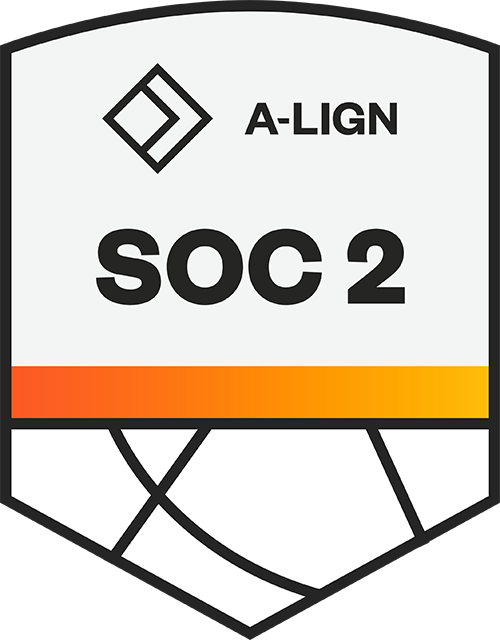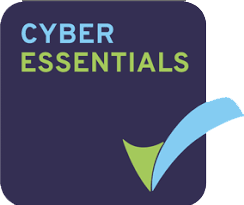
Mastering SQL basics with Code First Girls: a guide for beginners
25 JanNat Amanfo from our Configuration Team recently participated in a Code First Girls course. She details her experience here:
What is Code First Girls?
Code First Girls is an organization that helps women transition into tech roles by introducing them to programming and connecting them with tech companies. Their mission is to close the gender gap in the technology industry, based on the belief that women are just as capable as men but lack the support to break into these fields.
They offer a wide range of courses, including Career Switcher courses for women looking to transition into tech from other industries, Uni-KickStarter courses for recent university graduates, and MOOCs (Massive Open Online Courses), which are free and provide insights into programming languages and applications.
Upon completing a course, participants join the Code First Girls Alumni network. This provides opportunities to connect with other graduates, attend future seminars and talks hosted by CFG, and even become a CFG Instructor to lead programming courses.
What is included in a Code First Girls course
The course I completed was the Career Switcher course titled Introduction to Data & SQL. It was held every Thursday evening between September and October, spanning 8 weeks. Each session lasted 2 hours, with homework assigned after each class.
The modules covered SQL coding, database management, database analysis, and data visualization. The course culminated in a final project presentation.
Some of the key concepts included:
- Backing up and restoring databases on a server
- Normalization
- Constraints on tables
- Subqueries
- In-built functions
- Transactions (how to commit and roll them back)
- Virtual tables
- Stored functions and procedures
- Events and triggers
For the final project, we were tasked with building a database containing multiple tables with various column types. We inserted data into these tables and connected them using primary and foreign keys. Then, we applied what we had learned to retrieve and update data within our tables, ultimately presenting the project to our group.
To keep the project engaging, I chose to base it on one of my favorite childhood pastimes – Pokémon. The project was well-received and met all requirements. Upon completion, I received a certificate recognizing my successful completion of the course.
My Experience at Code First Girls
I was able to grasp many of the SQL concepts presented during the course, thanks to my prior exposure to similar ideas in my work as a configurator.
For instance, the concept of foreign keys in child tables linking to primary keys in parent tables was familiar due to my understanding of Lookups in CoreStream GRC’s vNext Platform. Similarly, when our instructor explained the importance of ERDMs (Entity Relationship Diagram Models) to outline table connections, it resonated because we use schemas to describe relationships between collections in our HLDs.
Joins were also straightforward to understand, as they are frequently used when configuring data in CoreStream GRC sites. This demonstrates the effectiveness of CoreStream GRC’s platform; it enables us to learn SQL concepts intuitively, even without explicit training.
That said, there were many new things I learned during the course, such as subqueries, stored functions, and stored procedures. I also learned how to import data into Python and use Python functions to analyze data more effectively. Additionally, I was introduced to data visualization techniques by importing data into Tableau, where I learned how to create charts and display KPIs.
Final Thoughts
The course was incredibly helpful in teaching me new concepts related to SQL and database management. It has also boosted my confidence in pursuing a more SQL-focused role, confirming that the skills and concepts I’ve gained at CoreStream GRC are broadly applicable across various settings.
I believe any woman joining CoreStream GRC without prior SQL knowledge would benefit greatly from this course. By the end, they would feel confident handling external data sets and chart queries without relying heavily on trial and error or seeking constant help from colleagues.
I’m grateful to CoreStream GRC for sponsoring my place in this course and supporting my career aspirations. This underscores CoreStream GRC’s commitment to diversity and equality in the workplace. This dedication is further evidenced by their review of the Equal Opportunities policy in response to the BLM protests (which I truly appreciated), their diversity training initiatives, and their support for charities that challenge gender stereotypes.
CoreStream GRC is passionate about supporting women in GRC, learn more about our sponsorship with #WGRC 2025 awards here.
COMPANY

CoreStream Ltd
20 Grosvenor Pl,London,
SW1X 7HN
4th Floor,
New York,
NY 10017
Privacy Overview
| Cookie | Duration | Description |
|---|---|---|
| _GRECAPTCHA | 5 months 27 days | Google Recaptcha service sets this cookie to identify bots to protect the website against malicious spam attacks. |
| cookielawinfo-checkbox-analytics | 11 months | This cookie is set by GDPR Cookie Consent plugin. The cookie is used to store the user consent for the cookies in the category "Analytics". |
| cookielawinfo-checkbox-functional | 11 months | The cookie is set by GDPR cookie consent to record the user consent for the cookies in the category "Functional". |
| cookielawinfo-checkbox-necessary | 11 months | This cookie is set by GDPR Cookie Consent plugin. The cookies is used to store the user consent for the cookies in the category "Necessary". |
| cookielawinfo-checkbox-others | 11 months | This cookie is set by GDPR Cookie Consent plugin. The cookie is used to store the user consent for the cookies in the category "Other. |
| cookielawinfo-checkbox-performance | 11 months | This cookie is set by GDPR Cookie Consent plugin. The cookie is used to store the user consent for the cookies in the category "Performance". |
| CookieLawInfoConsent | 1 year | CookieYes sets this cookie to record the default button state of the corresponding category and the status of CCPA. It works only in coordination with the primary cookie. |
| viewed_cookie_policy | 11 months | The cookie is set by the GDPR Cookie Consent plugin and is used to store whether or not user has consented to the use of cookies. It does not store any personal data. |
| Cookie | Duration | Description |
|---|---|---|
| _clck | 1 year | Microsoft Clarity sets this cookie to retain the browser's Clarity User ID and settings exclusive to that website. This guarantees that actions taken during subsequent visits to the same website will be linked to the same user ID. |
| _clsk | 1 day | Microsoft Clarity sets this cookie to store and consolidate a user's pageviews into a single session recording. |
| _ga | 1 year 1 month 4 days | Google Analytics sets this cookie to calculate visitor, session and campaign data and track site usage for the site's analytics report. The cookie stores information anonymously and assigns a randomly generated number to recognise unique visitors. |
| _ga_* | 1 year 1 month 4 days | Google Analytics sets this cookie to store and count page views. |
| _gid | 1 day | Google Analytics sets this cookie to store information on how visitors use a website while also creating an analytics report of the website's performance. Some of the collected data includes the number of visitors, their source, and the pages they visit anonymously. |
| CLID | 1 year | Microsoft Clarity set this cookie to store information about how visitors interact with the website. The cookie helps to provide an analysis report. The data collection includes the number of visitors, where they visit the website, and the pages visited. |
| MR | 7 days | This cookie, set by Bing, is used to collect user information for analytics purposes. |
| SM | session | Microsoft Clarity cookie set this cookie for synchronizing the MUID across Microsoft domains. |
| vuid | 1 year 1 month 4 days | Vimeo installs this cookie to collect tracking information by setting a unique ID to embed videos on the website. |
| Cookie | Duration | Description |
|---|---|---|
| ANONCHK | 10 minutes | The ANONCHK cookie, set by Bing, is used to store a user's session ID and verify ads' clicks on the Bing search engine. The cookie helps in reporting and personalization as well. |
| MUID | 1 year 24 days | Bing sets this cookie to recognise unique web browsers visiting Microsoft sites. This cookie is used for advertising, site analytics, and other operations. |
| Cookie | Duration | Description |
|---|---|---|
| __cf_bm | 30 minutes | Cloudflare set the cookie to support Cloudflare Bot Management. |
| Cookie | Duration | Description |
|---|---|---|
| _gat | 1 minute | Google Universal Analytics sets this cookie to restrain request rate and thus limit data collection on high-traffic sites. |
| _uetsid | 1 day | Bing Ads sets this cookie to engage with a user that has previously visited the website. |
| _uetvid | 1 year 24 days | Bing Ads sets this cookie to engage with a user that has previously visited the website. |
| SRM_B | 1 year 24 days | Used by Microsoft Advertising as a unique ID for visitors. |






